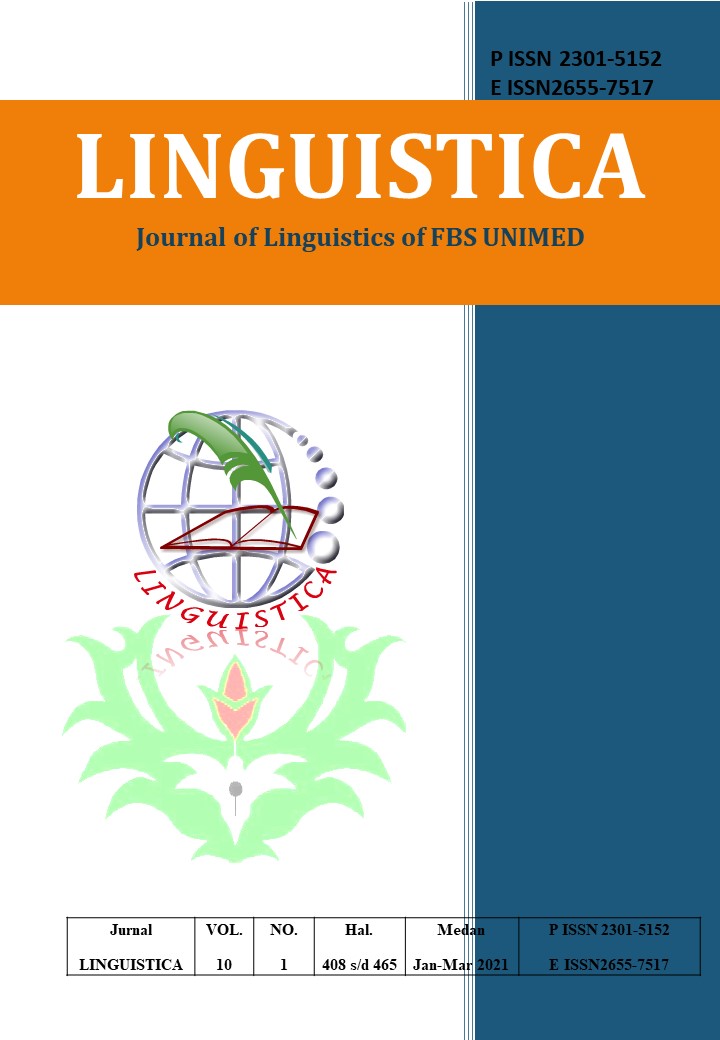MAIN CHARACTER™S STRUGGLE AGAINSTS WOMAN OPPRESSION IN œMARLINA THE MURDERER IN FOUR ACTS MOVIE
DOI:
https://doi.org/10.24114/jalu.v10i1.24253Abstract
This study dealt with the struggle of the main character in Marlina the Murderer in Four Acts movie. The objectives were to find out the oppressions that the main character experienced, the struggles against the oppression, and how the main character struggled against the oppression. This study used descriptive qualitative as the method to analyze the data. The researcher used Young's (1990) theory to analyze the data from the movie's script. Marlina, as the movie's main character, suffered from three kinds of oppression; marginalization, powerlessness, and violence. Marlina suffered oppression because she was powerless; she lived in poverty and patriarchal culture in Sumba. Marlina also struggles against oppression by doing feminism; they are; liberal feminism and radical feminism.Downloads
Published
2021-04-08
How to Cite
SIMANJUNTAK, D. N., TAMBUNAN, A. R. S., & TETTY, M. (2021). MAIN CHARACTER™S STRUGGLE AGAINSTS WOMAN OPPRESSION IN œMARLINA THE MURDERER IN FOUR ACTS MOVIE. LINGUISTICA, 10(1), 418–427. https://doi.org/10.24114/jalu.v10i1.24253
Issue
Section
Articles
License
Copyright (c) 2021 DESY NATALIA SIMANJUNTAK, ANNA RIANA SURYANTI TAMBUNAN, MORADA TETTY

This work is licensed under a Creative Commons Attribution-ShareAlike 4.0 International License.
Authors who publish with this journal agree to the following terms:
- Authors retain copyright and grant the journal the right of first publication with the work simultaneously licensed under a Creative Commons Attribution License that allows others to share the work with an acknowledgment of the work's authorship and initial publication in this journal.
- Authors are able to enter into separate, additional contractual arrangements for the non-exclusive distribution of the journal's published version of the work (e.g., post it to an institutional repository or publish it in a book), with an acknowledgment of its initial publication in this journal.
- Authors are permitted and encouraged to post their work online (e.g., in institutional repositories or on their website) prior to and during the submission process, as it can lead to productive exchanges, as well as earlier and greater citation of published work (See The Effect of Open Access).
- This work is licensed under a Creative Commons Attribution-ShareAlike 4.0 International License.









